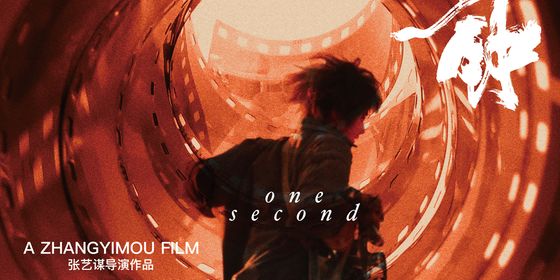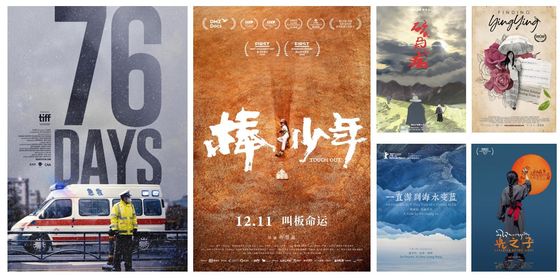What does the success of The Wandering Earth spell for the future of Chinese cinema and sci-fi?
The Wandering Earth, an adaption of a short story by award-winning sci-fi author Liu Cixin, was always intended to be a roaring success.
Four years in the making, with a budget of 500 million RMB (75 million USD) and a 7,000-strong production team, this was to be no cookie-cutter production—but a sign, as one New York Times headline declared, that “China’s Film Industry Finally Joins the Space Race.”
Set in a future where the Earth is facing an expanding Sun, the plot follows a scheme to use giant engines to motor the planet on a multi-generational, 2,500-year journey to a new home in a neighboring solar system. Unfortunately, Earth gets caught in Jupiter’s gravity field en route, and a team of transporters must come up with another plan to save the human race from extinction.
Buoyed by a Spring Festival opening, Earth broke a single-day box-office record, later hitting 4.1 billion RMB (609 million USD) to become China’s second-highest grossing movie after Wolf Warrior 2 (2017), with which it shares a star, Wu Jing. The film even managed to make over 96.6 million USD in the US, Australia, and New Zealand, according to Variety, while streaming rights were soon snapped up by Netflix.
Domestic sci-fi has a checkered past. China’s first sci-fi film was Death Ray on Coral Island (1980), in which scientists protect atomic technology from being used as a weapon by an evil foreign company. Another early production, 1988’s Wonder Boy, was a children’s story about a boy with the power to produce and control electricity, while The Ozone Layer Vanishes (1990) focused on environmental issues.
Other films contained sci-fi elements, but it wasn’t until Liu Cixin became the first Asian author to win a Hugo Award in 2015 that the idea of producing a special effects-heavy space odyssey like Earth began to seem financially feasible. It didn’t hurt that such an epic would also chime with China’s recent space ambitions.
Even then, there were hurdles for 39-year-old director Guo Fan (Frant Gwo), who was repeatedly told that it was beyond the Chinese film industry’s capability to make a satisfactory sci-fi film; audiences were used to Hollywood productions, so expectations would be sky-high. Another film based on Liu’s most renowned work, The Three-Body Problem, has been indefinitely stuck in post-production since 2016.
For Guo, Hollywood’s secret is its high level of industrialized filmmaking, which he experienced first-hand in a study tour in 2014. Describing the process of filming Earth to China Economic Weekly, Guo mentions using software so that different scriptwriters’ work would be searchable during production, and clarifying the job descriptions of all the crew—procedures that have long been standardized in Hollywood, but were almost unheard-of in China.
Since its release, the film has been widely embraced by those who claim its plot and themes are uniquely Chinese. The idea of moving the Earth, rather than finding a new planet, is said to reflect Chinese people’s attachment to their homeland, as opposed to themes of exploration and colonization often depicted in Western cinema.
The film’s emphasis on homecoming, though at times heavy-handed, prompted the People’s Daily to claim that it “displayed fully the cultural confidence of Chinese films,” while Xinhua Agency interpreted the plot’s use of “collective power to accomplish major projects” as showcasing the “community of common destiny” concept that the state has been pushing through its Belt and Road Initiative.
Not all the feedback was positive. On Douban, considered the most credible rating platform in China, an influx of one-star reviews drove Earth’s initial rating of 8.6 down to 7.9 within days of its release, and debate is raging over whether these were from paid trolls or legitimate critics.
Some criticized Wu Jing for playing the same stereotypical hero that he does in the Wolf Warrior series, while others were disappointed with the superficial treatment of the original material. “Besides Liu Cixin’s magnificent imagination of the universe, his insights on human nature and forms of society are even more brilliant,” wrote one disgusted reviewer on Douban. “The movie castrated itself [and] lowered itself to an American popcorn film,” (The film has drawn comparisons with a number of Hollywood films, including 2001: A Space Odyssey, Armageddon, The Core, Gravity, and Interstellar.)
The story told on screen is indeed far different from Liu’s original tale, which had its atmosphere of impending doom in which arts and philosophy, religious beliefs, family structures, love, and faith have all given way to the survival instinct. Plotlines such as bloody conflicts between “Earth advocates” and “spaceship advocates” are passed over in favor of a story that has humanity rallying around a single plan.
Still, audience can expect a truly original story with Chinese elements, and 2019 will see even more domestic sci-fi releases, such as Shanghai Fortress, depicting an arduous war against alien invaders; Pathfinder, about a group of space travelers fighting for survival in an alien desert; and Warriors of Future, in which a futuristic team of soldiers battle aliens.
Yet as these identical-sounding plotlines suggest, Chinese filmmakers and investors are still far from figuring if the real winning formula is a story with “Chinese characteristics,” or the full Hollywood treatment.
The Wandering Earth is a story from our issue, “China Chic.” To read the entire issue, become a subscriber and receive the full magazine.












